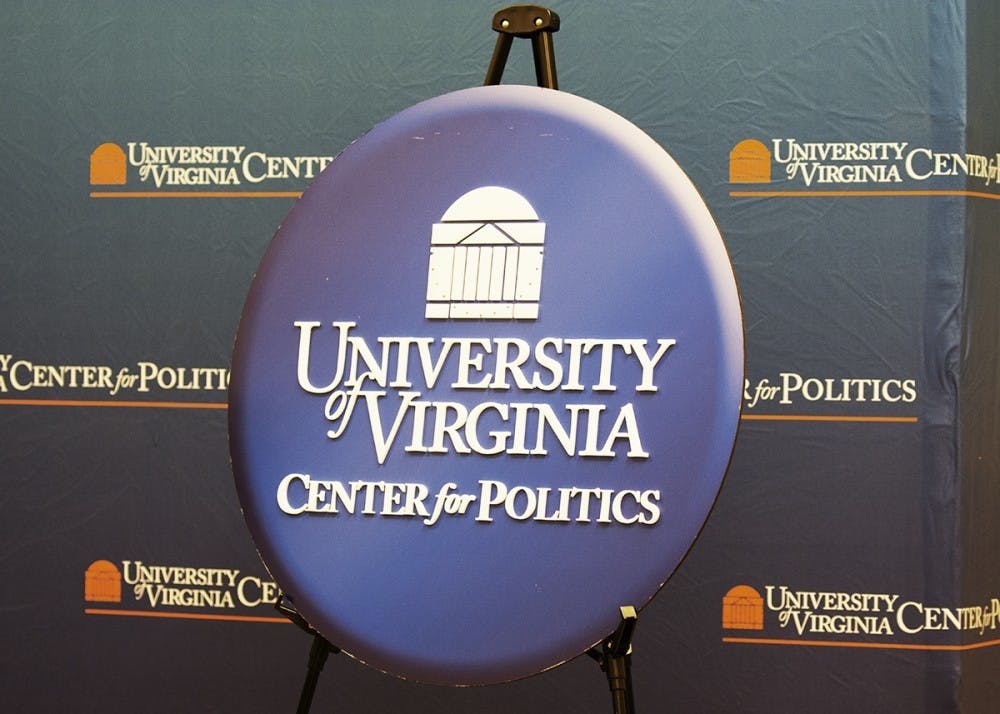The University Center for Politics has produced 16 documentaries including four Emmy award-winning films, with its 17th film in production, set to be released in late August or early September this year. The three-hour documentary will examine the state of democracy nationally and globally through the viewpoint of experts, political figures and citizens.
The Center has partnered with PBS since the first documentary was made in 1998. At the time, PBS was the primary production company, providing film crews and editing services.
The Center’s first film focused on former Gov. Mills Godwin, who was the only governor of Virginia to serve two terms. Godwin did so under two different party labels — first as a Democrat and later as a Republican. This film was the springboard for a series called “No Higher Honor” that told the story of modern Virginia governors through 1994.
Kenneth Stroupe, Chief of Staff of the Center for Politics, discussed this series in an interview with The Cavalier Daily, noting how these locally-focused films eventually gave rise to four Emmy award-winning films and nearly a dozen other successful documentaries with a more national focus.
The latest film in the “No Higher Honor” series told the story of Governor Douglas Wilder, the first African-American governor, who served as the 66th governor of Virginia from 1990 to 1994.
“Governor Wilder was the first African-American to serve as governor of any state,” Stroupe said. “[Virginia] was the capital of the Confederacy, being the first state to elect an African-American governor, no one at the time thought that it would occur. Because he was such a national and international figure, that documentary took off … there was interest far outside of Virginia in wanting to air that. Every [film] after that has been a national documentary.”
The Center’s following films were more oriented toward national issues, such as Emmy award-winning “Out of Order,” which examines Congress through a critical lens. This documentary includes interviews from Bob Dole, the 1996 Republican nominee for president who ran against the incumbent Democratic President Bill Clinton, and Geraldine Ferraro, the first woman nominated by a national party for vice president.
Stroupe noted the importance — but also unpredictable nature — of releasing these documentaries at a time in which the subject matter is of national concern or interest in light of the success of “Out of Order.”
“It’s an issue that clearly is not going away — hyper-partisanship,” Stroupe said. “It just becomes more and more exacerbated. We are just in a very hyper-partisan era and we hit it just at the right moment with that [film]. It captured people’s attention.”
Additionally, “Feeling Good about America,” another Emmy-award winning documentary, was released at a similarly opportune time. Stroupe noted that following the 2016 election cycle, the nation was predisposed to feelings of nostalgia and a time in which presidential candidates got along with one another. This condition of the time was expressed throughout the film, demonstrating the amicable relationship between presidential candidates, Democrat Jimmy Carter and Republican Gerald Ford throughout the 1976 election cycle, contributing to its success.
Each documentary begins as a mere idea and can take anywhere from one-and-a-half to three years to complete — depending on the length of the film — making it difficult to gauge national interest ahead of time.
“They’ve all had their interesting moments and reasons for them being popular that we couldn’t have imagined when we were making it,” Stroupe said.
The film currently in production is about the condition of democracy as an institution in the United States and globally. Over the course of three hours, the documentary examines the state of democracy, and it concludes by addressing the concerns with the system and possible solutions.
The Center for Politics and PBS are still engaged in partnership although they are hiring a third party production crew for this film. However, the PBS partnership will continue through major content-related issues.
The film includes interviews with prominent political figures including several former senators such as Jeff Flake, former Arizona representative, and representatives from the Freedom House. There will also be appearances from Anne Dowd, an actress from “The Handmaid’s Tale.” Dowd’s role on “The Handmaid’s Tale” demonstrates one dystopian version of a society in which democracy falls to a misogynistic, tyrannical society. Speaking from her experience in this role, Dowd is able to help the filmmakers examine the future of America, should the institution of democracy fail.
“It’s a hard concept to relay because in many ways you take for granted the system you live in … If we lose faith in this system, something will replace it,” Stroupe said. “I tried to make this point in the documentary. We better be prepared that that means almost anything. You can’t assume that if we got rid of this democratic system, that there would be an equally benevolent, good or better system that comes along. It could just as easily be a really awful system.”
The film aims to show a wide variety of perspectives across political orientations, nationalities and areas of expertise throughout the film and particularly in the final hour. Considering the complexity and breadth of the issue, Stroupe concedes that some voices will undoubtedly be left out.







